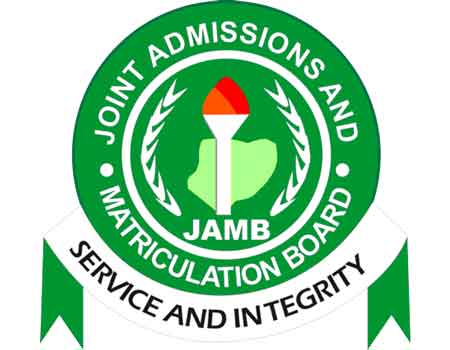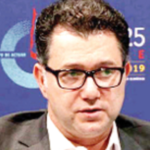THE executive secretary of the National Commission for Colleges of Education (NCCE), Professor Paulinus Chijoke Okwelle, has expressed concerns about the dwindling enrolment figures of candidates into the Nigeria Certificate in Education (NCE) programmes in the country.
He has accordingly asked the Joint Admissions and Matriculation Board (JAMB) to lower the entry requirements including accepting a Pass in Mathematics and English Language as pre-requisite for admissions so as to attract more candidates to enroll for NCE programmes.
Okwelle made the call when he paid a courtesy visit to the national headquarters of JAMB, as indicated in the board’s Monday Bulletin, to discuss with the registrar, Professor Is-haq Oloyede, on how to boost enrollment into colleges of education in the country,
While he decried the dwindling candidates’ enrolment into NCE programmes in Nigeria, he stressed that the country is under a threat if urgent remedial action is not taken.
According to the executive secretary, concerted efforts have to be made by relevant agencies, including JAMB, to put in place necessary collaborations and initiatives to boost the fortunes of NCE programmes in Nigeria.
As part of the remedial measures, Professor Okwelle urged JAMB to devise separate and realistic entry requirements for colleges of education as against those for degree-awarding institutions, to boost enrollment.
He said: “Uniform entry requirements to tertiary institutions, have adverse effects on the enrollment of students into to NCE programmes in the country.
“Hence, NCE candidates should not be forced to have similar entry requirements with those seeking degree certificates. Or better still; consider organising separate qualifying examinations for candidates seeking admission into colleges of education.”
“Therefore, the commission proposes that admission requirements into NCE should allow for Pass in Mathematics for candidates seeking admissions into Arts and Humanities programmes as well as Pass in English Language for those seeking admissions into Sciences, vocational and technical-based courses.”
He, however, stated that such candidates must obtain credit passes in both subjects before graduation.
Similarly, he proposed that the NCE certificate should be considered as the only requirement for admission into Bachelor of Education (B.Ed.) programmes in the nation’s universities to encourage more entrants.
He also enjoined policy makers to consider the re-introduction of pre-NCE programmes to widen entry options and ensure ease of access, thereby increasing the enrolment figures of students.
He further urged JAMB to consider granting special regularisation status to all the pre-NCE candidates, who had passed the pre-NCE placement examination.
Professor Okwelle advised that all policy considerations on the request for waiver for all the NCE programmes should be handled with utmost necessity.
This he noted is for the sustainability and relevance of the system considering the increasing population of individuals, who need basic education and, at the same time to complement the efforts of the government in reducing the ever-increasing number of the out-of-school children in Nigeria.
In his remarks, the registrar, Professor Is-haq Oloyede, expressed appreciation to the Executive Secretary, NCCE, for the visit.
He disclosed his special interest in teacher education as he had actually enrolled for an NCE programme at the start of his academic career though he did not finish the programme.
The registrar assured the commission of his unwavering support, particularly on the outlined challenges to curtail the dwindling number of candidates enrolling for NCE programmes in the country.
He, therefore, informed the delegation that the Board would open a window for the regularisation of the newly established Colleges of Education nationwide, which have sourced candidates internally with no JAMB registration for the 2022 academic session only.
He advised the commission to encourage universities to mount post-doctoral programmes in Education to encourage teachers in the tertiary institutions with PhDs without education background to acquire teaching skills in education which he said would enhance the teaching profession.
WATCH TOP VIDEOS FROM NIGERIAN TRIBUNE TV
- Let’s Talk About SELF-AWARENESS
- Is Your Confidence Mistaken for Pride? Let’s talk about it
- Is Etiquette About Perfection…Or Just Not Being Rude?
- Top Psychologist Reveal 3 Signs You’re Struggling With Imposter Syndrome
- Do You Pick Up Work-Related Calls at Midnight or Never? Let’s Talk About Boundaries






